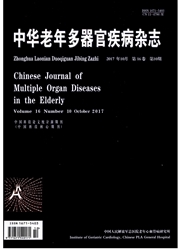

 中文摘要:
中文摘要:
目的探讨耐药突变选择窗(MSW)与体内细菌耐药发生的相关性。方法建立兔组织笼金黄色葡萄球菌感染模型,给予不同剂量的左氧氟沙星灌胃治疗。抽取组织笼内组织液进行药物浓度测定,同时监测组织笼内细菌药物敏感性变化。结果当左氧氟沙星浓度位于MSW内时,导致金黄色葡萄球菌耐药突变体的选择富集.引起耐药。当药物浓度低于抑制菌群中99%细胞生长的最低药浓度或高于防耐药变异浓度时。无耐药出现。当左氧氟沙星浓度在MSW内的下部时,最容易选择出耐药突变体.且耐药出现最快。结论MSW在体内存在,保持抗菌药物浓度在MSW以上可以限制耐药突变体的选择富集。
 英文摘要:
英文摘要:
Objective To study the correlation of mutant selection window(MSW) with selection of drug-resistant mutants in vivo. Methods Tissue cage infection model with Staphylococcus aureus was established in rahbits, and the infected animals were treated orally with various doses of levofloxacin. Changes in levofloxacin concen tration and levofloxacin susceptibility of bacteria were monitored at the site of infection. Results The selection of mutants and drug-resistance occurred when levofloxaxin concentration at the site of infection fluctuated within MSW. The drug resistance did not occur when the levofloxacin concentration was lower than MIC99 or higher than mutant prevention concentration. The mutant selection occurred more easily and earlier when levofloxacin concentrations were m the lower portion of MSW than in the upper portion, as iedicated by MIC, Conclusion The MSW exists in vivo. Maintenance of drug concentrations above the MSW can suppress the outgrowth of resistant mutants.
 同期刊论文项目
同期刊论文项目
 同项目期刊论文
同项目期刊论文
 期刊信息
期刊信息
